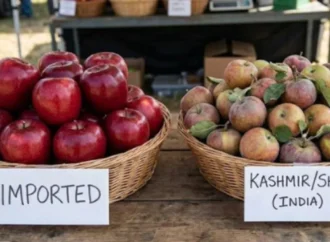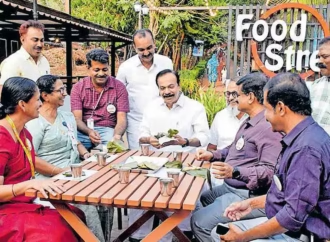Dangerous Foods to Reheat: What Turns Toxic and Why
- Food Safety, Health & Wellness
- February 18, 2025
 Food Manifest
Food Manifest 
Overview Challenging long-standing “heart-healthy” advice, Delhi-based cardiologist Dr Alok Chopra has advised people to stop discarding egg yolks. The functional medicine expert, who has over four decades of clinical experience, said eating egg whites alone may do more harm than good. In a recent Instagram post, Dr Chopra criticised the popular “egg white only” trend,
READ MORE
Key Development Walk into any supermarket in India and you will see apples labelled “imported” or “premium,” often sold at higher prices. Many consumers assume that a higher price means better nutrition. But that assumption does not always hold. Dr Sudhir Kumar, a neurologist based in Hyderabad, advises consumers to look beyond glossy packaging and
READ MORE
Key Update In a major enforcement action, the Food Safety Flying Squad of the Food and Drugs Control Administration Gujarat (FDCA Gujarat) conducted a surprise inspection at Madhupura Market in Ahmedabad, targeting the sale and storage of loose spices suspected of adulteration. During the drive, officials inspected around 30 shops and firms. The team seized
READ MORE
Key Development Traders and small-scale mill owners in Kuttyadi, Kozhikode, have alleged that fake coconut oil is widely available in local markets and that authorities have not taken strong action. They claim a Tamil Nadu-based lobby supplies adulterated oil to Kerala. According to them, wholesalers in Tamil Nadu route the product through agents operating in
READ MORE
Key Development With demand for ghee rising, the Jaipur health department has warned consumers about the growing sale of adulterated ghee in packaging that imitates trusted brands. Recent enforcement drives in Jaipur and nearby districts have led officials to seize thousands of litres of suspected fake ghee. Investigations found that operators often mix vegetable oils
READ MORE
Key Updates Authorities have launched a new Food Street at Kottakkunnu in Malappuram in Kerala to boost the food and tourism sectors in the Malabar region. The initiative aims to generate employment for local entrepreneurs and service staff while offering visitors safe and hygienic dining options. Multiple Agencies Join Hands The project is a joint
READ MORE



